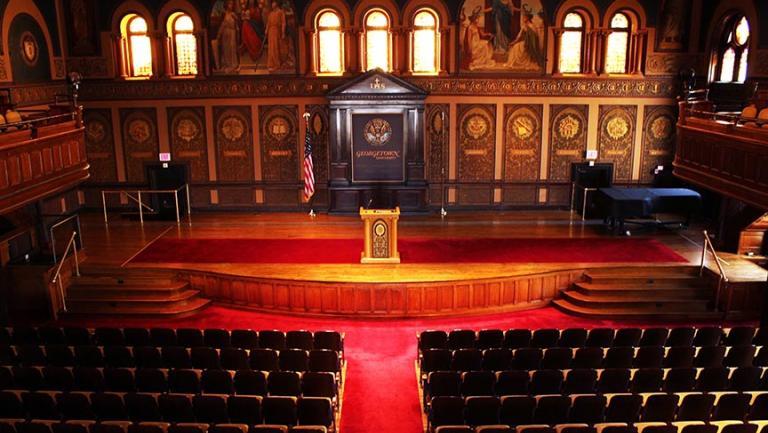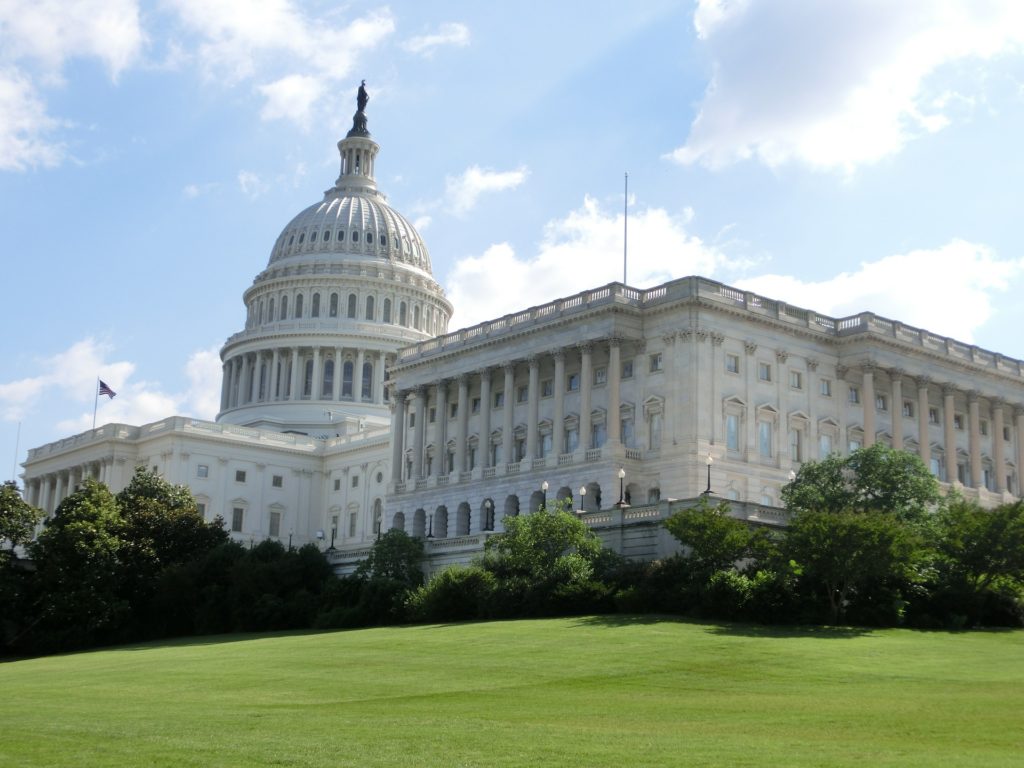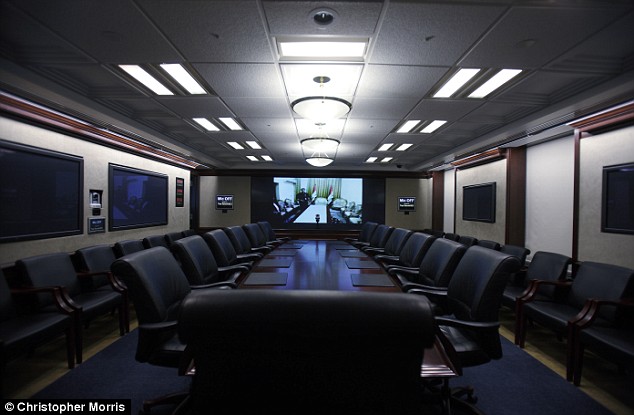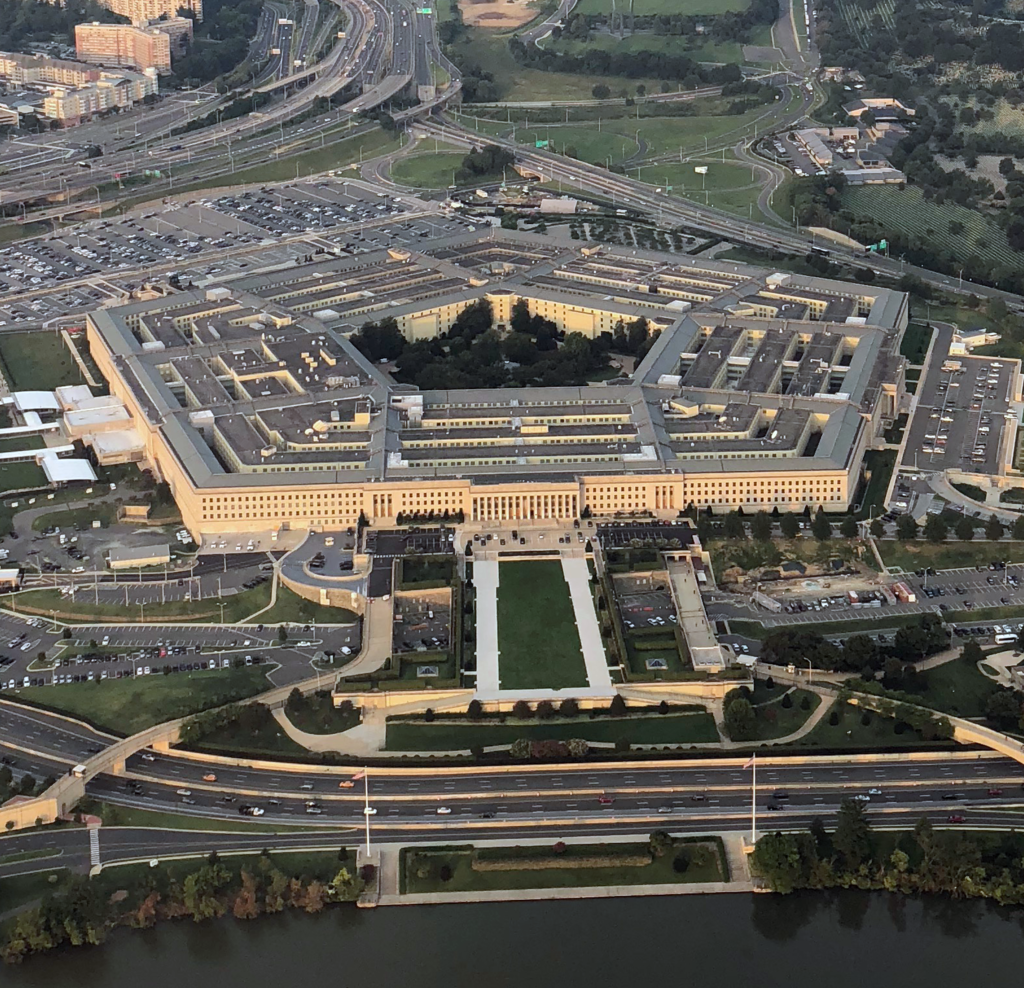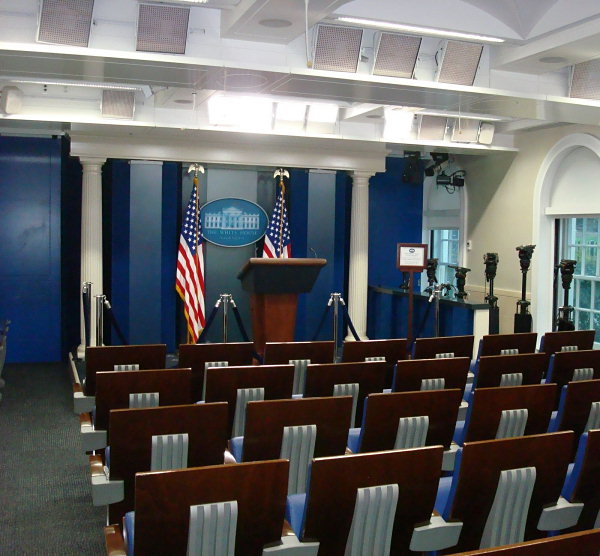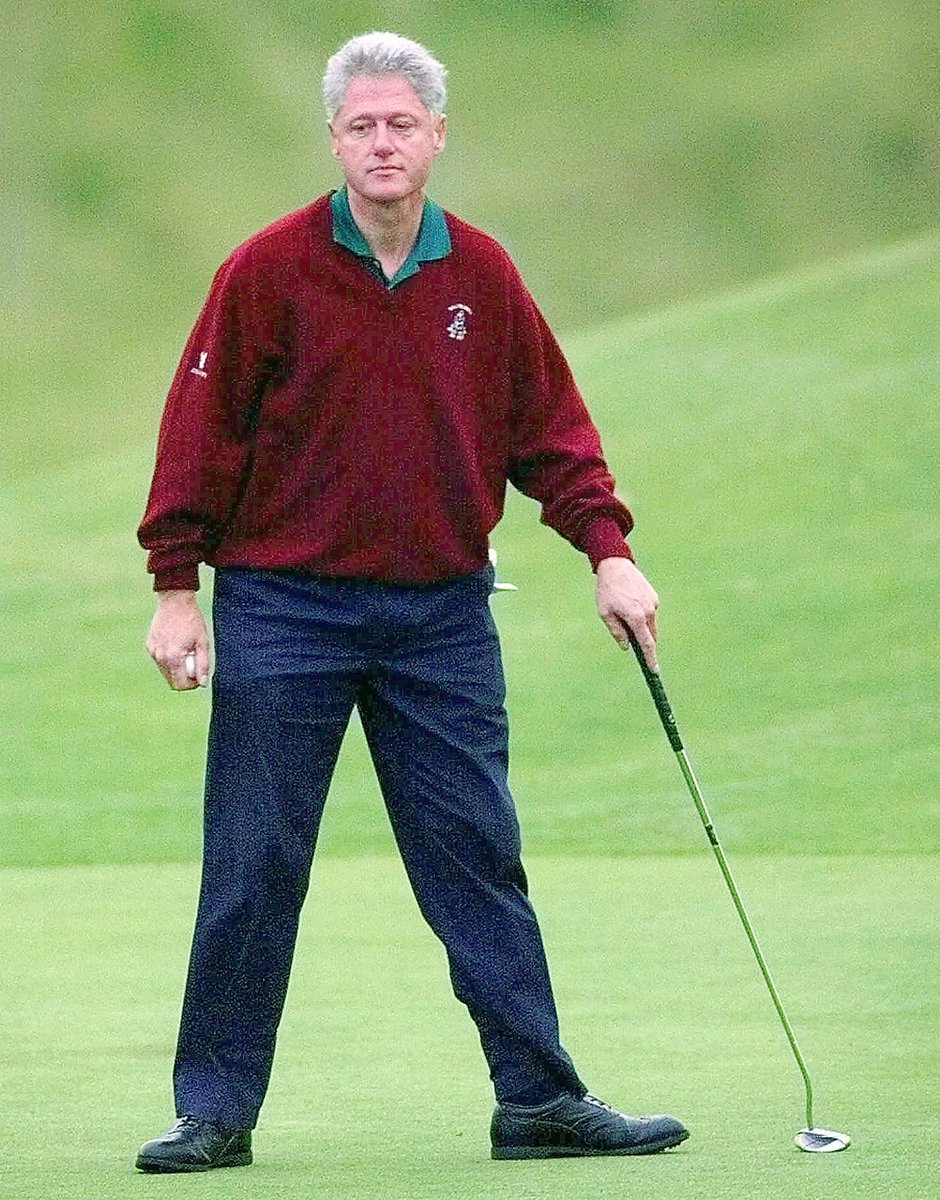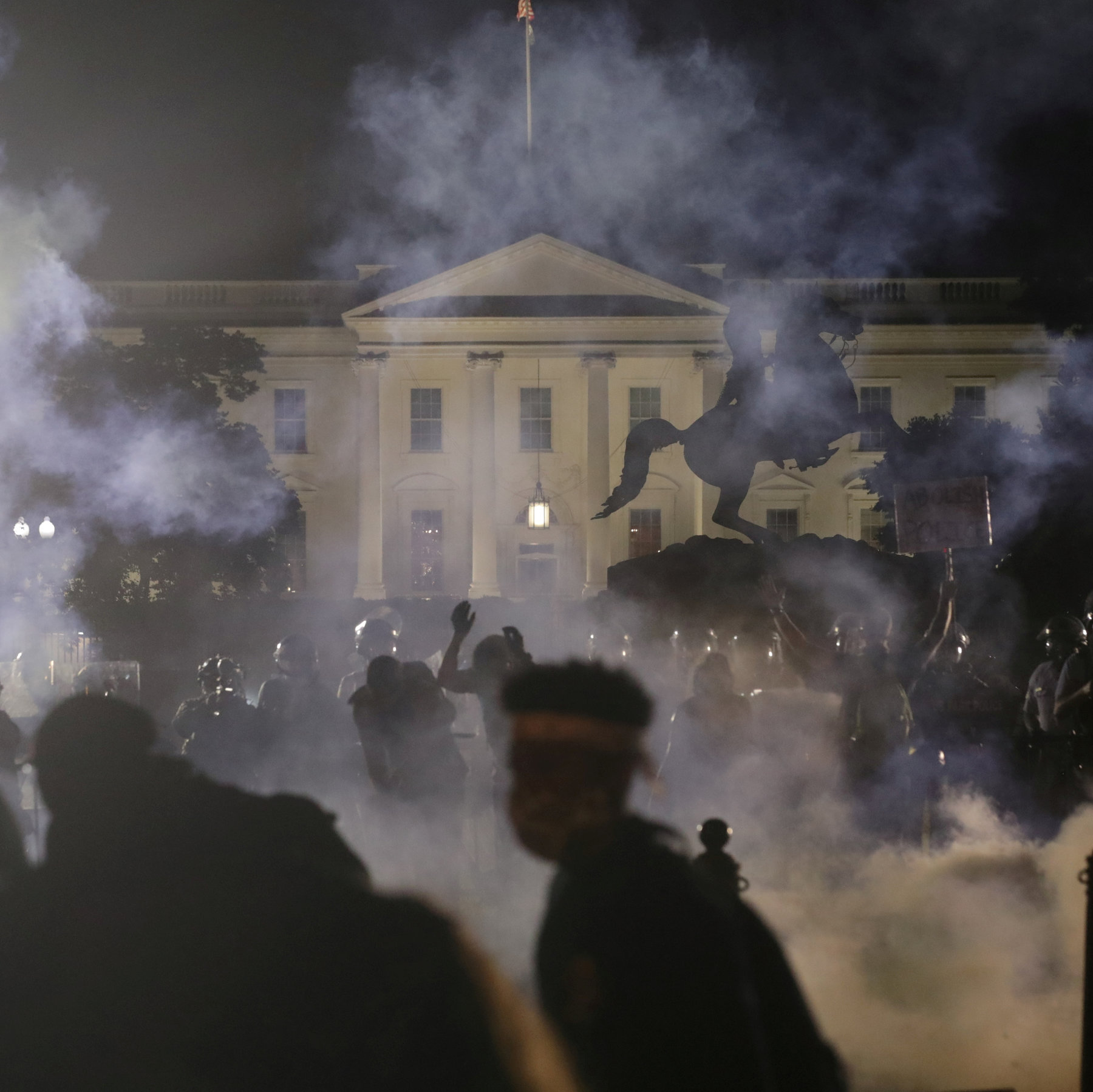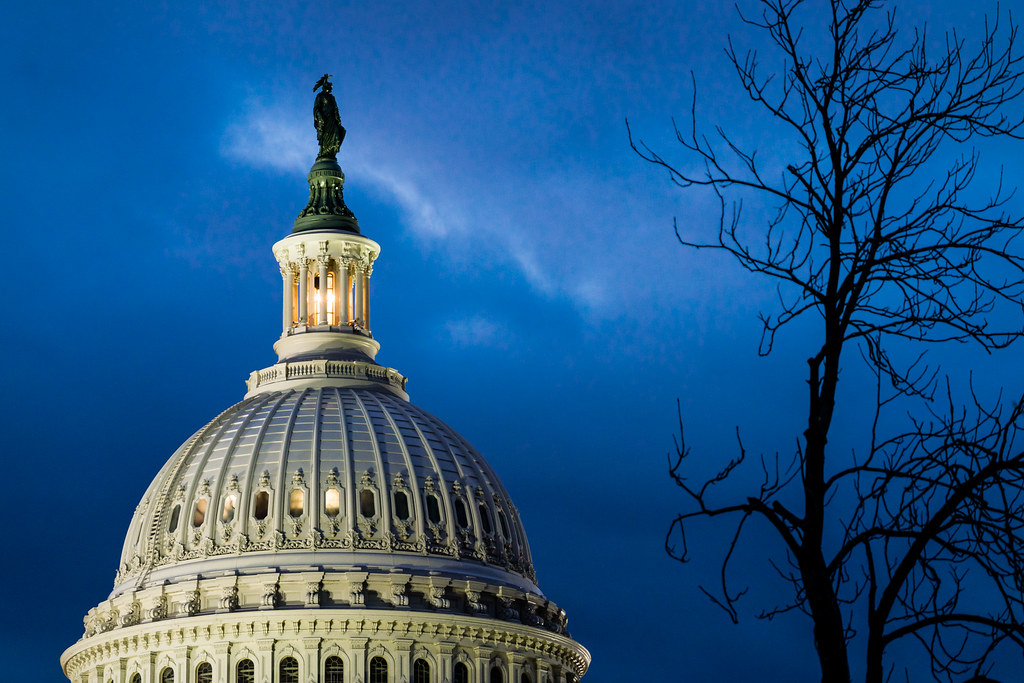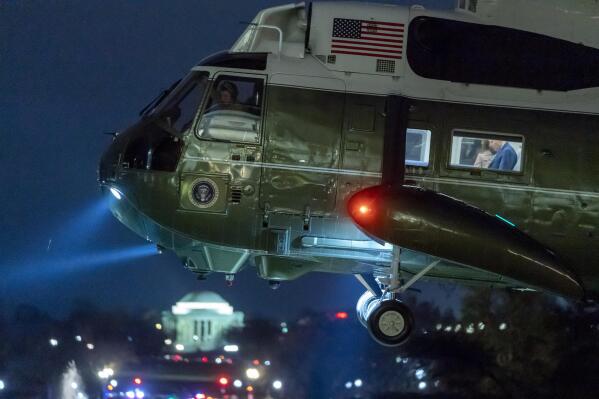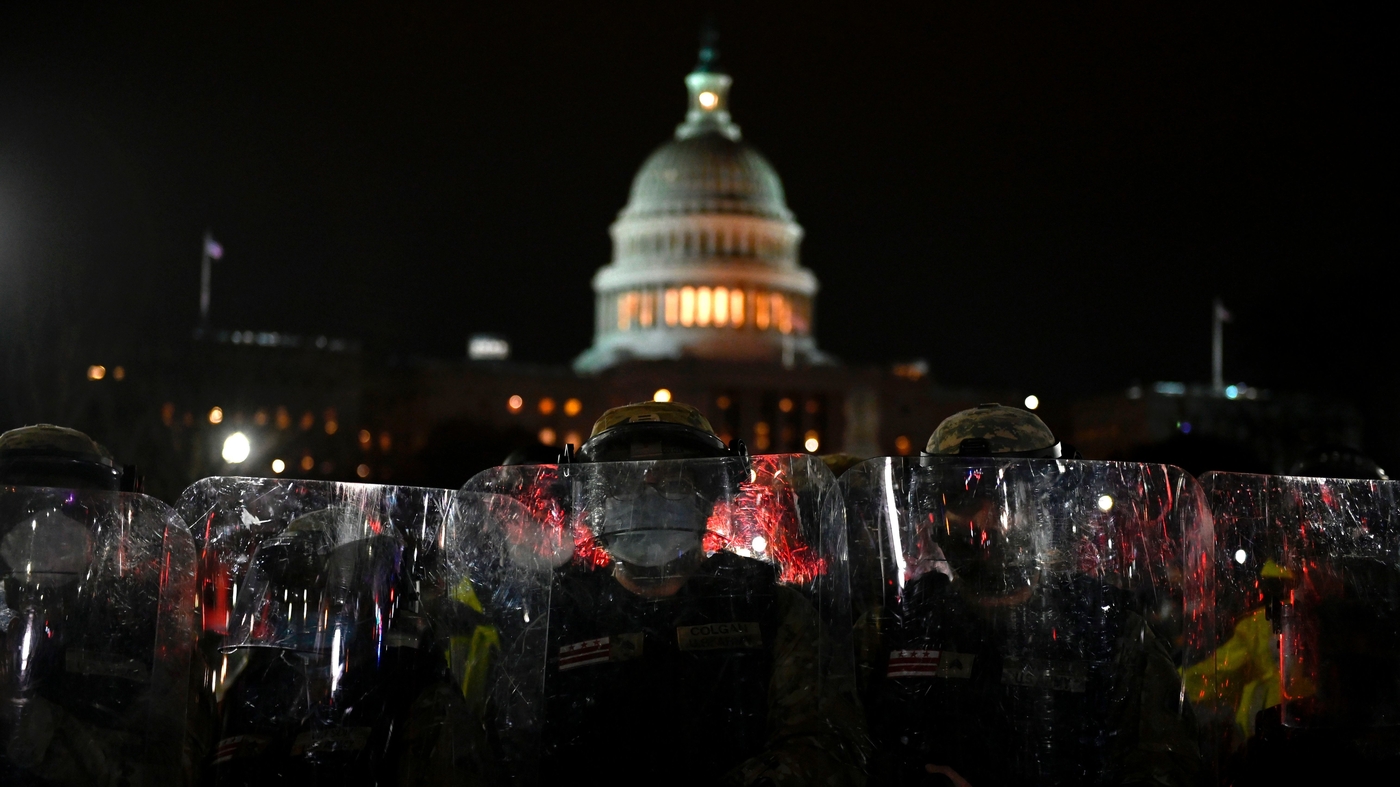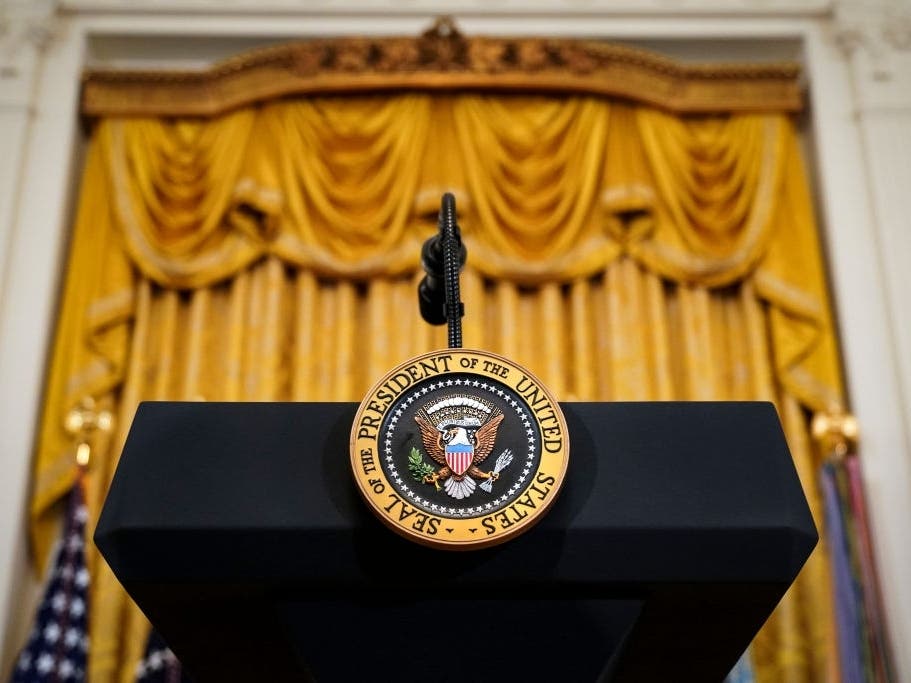- Jul 12, 2018
- 10,544
THE WHITE HOUSE
The Oval Office
November 1, 2002
7:45 PM EST
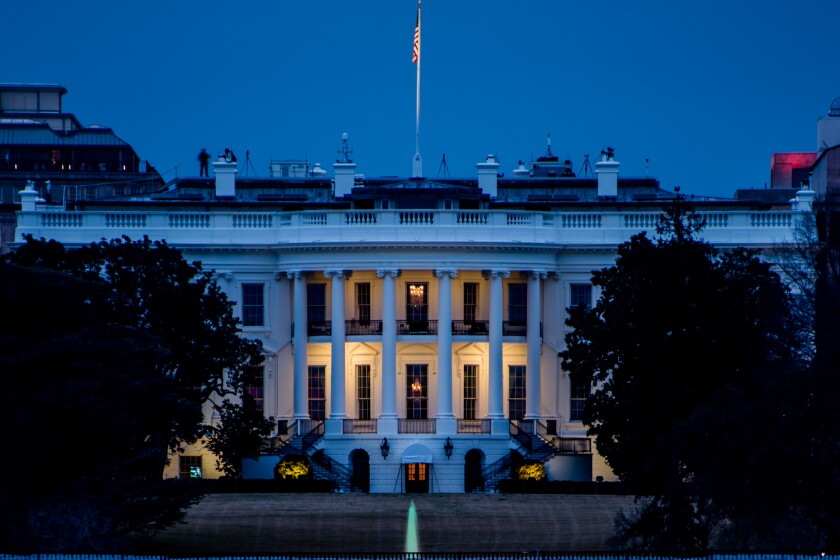
The Oval Office
November 1, 2002
7:45 PM EST
Part 1 - The Decider
Private
President Al Gore, Vice President Benjamin Sinclair, Secretary of State Jackson Fitzgearld, and the rest of the President's National Security Council (NSC) were huddled in the Oval Office. The President and Vice President were both seated on the comfortable sofas across the room from the Resolute Desk, and next to the fireplace. President Gore was seated at the end closest to the fireplace, while the Vice President was also seated on that same side but on the other sofa. Jackson Fitzgerald was seated next to Al Gore, while the Chairman of The Joint Chiefs of Staff was seated on the sofa near the Vice President. Several other members of the NSC were seated on chairs nearby or standing. Everyone had just gotten settled in. While the President had been briefed informally earlier in the day, this meeting was meant to serve as a formal brief and allow the President an opportunity to make some key decisions.
"Well gentlemen," Gore said as he relaxed and put his arm on the backrest of the sofa, "tell me exactly where we stand. Give me the details that you find not worth mentioning before... I should probably hear all of it," he said. Gore, the Vice President, and everyone else looked to the Director of the FBI, Harrison Cash.
"Mister President," said Director Cash. "The situation on the East Coast has grown increasingly worrying, and the situation in Washington is, I think, critical. New York, Boston, and even Portland Maine have seen thousands of determine protestors take to the streets. These demonstrators are not soft; on the contrary, they are determined. In Boston they have faced off against police and in New York they overran a barricade into Manhattan.... The right-wing group 'Patriot Front' has pledged to bring tens-of-thousands of protestors into Washington starting tonight. The Bureau believes that they are going to live up to this promise. Hotels from Baltimore to Alexandria are booked through Monday, and they're booked by people from all over the country. Tonight alone we expect Patriot Front to have 5,000 people assemble at the National Mall. The 'Progressive Alliance' is staging counter-protests across the country, and there are going to be some here in Washington, reaching into the thousands. Unless extreme action is taken, there are going to likely be conflicts between demonstrators," he concluded.
Everyone looked to the President, who did not look satisfied. "Well, Harrison, what does 'extreme action' look like? What do you think that we should do?" Gore asked.
"Sir," the Director started, "I think that you should ask the Capitol Police, D.C. MPD, National Parks Police, and all of the uniformed divisions to have all hands-on duty. I would also put the entire D.C. National Guard on standby. Finally, I would recommend that you declare a curfew of 6:00 PM in the District of Columbia for the next three days. That is what extreme action would look like," he concluded.
"Harrison, we can't shut the District down every time there is a major protest. We can't stop folks from using their first amendment rights," the President responded. "And if we put the National Guard on standby, can we keep that quiet or is it going to get out?" he asked the room.
General Joseph Kelly, the Chief of The National Guard Bureau, cleared his throat and leaned forward just a bit in his chair as he looked over at the leaders seated near the fireplace. "Mister President, if that order is given the public will find out one way or another. Putting the D.C. Guard on standby would essentially mean activating them and putting them in a holding place in case they are needed. They will be pulled from home, or work, and have to sit at a barracks waiting for further orders. If the media doesn't get their hands on the order you issue, they'll get tips from soldiers or their families."
Gore was about to speak again, but the FBI Director cut in again. "Mister President, this is going to be a serious situation and it is very important that the Federal Government is ready to respond. If you don't want to declare a curfew, at least have the local and federal police be prepared. Incident commanders should be assigned throughout the District at the White House, the Capitol, the Supreme Court so that they can handle protestors if they become rioters. No one can blame you for wanting to be prepared, sir."
The President looked down for a moment and then looked up to Vice President Sinclair who gave him a subtle nod of the head. "Alright," Gore said a bit reluctantly. "Director, if you don't mind, I'll assign the task of contacting the Capitol Police and D.C. Metro directly. Assign incident commanders, have police on standby... And General," Gore said, turning his head back to General Kelly.
"The D.C. Army National Guard has two battalions of Military Police, right?"
"Yes, Mister President. That is correct," the General replied.
"Order both of the battalions on standby for the next 72 hours. To be clear," Gore said, "this is a readiness test to see how prepared they are and how quickly they can respond to incidents. They are not being activated for emergency deployment."
"Yes sir, I will be sure that is made clear," the General said.
Gore looked around the room. The FBI Director, Sinclair, Fitzgerald, and everyone seemed to be satisfied. "Alright, thank you everyone," he said as he stood. Everyone else stood and started to file out of the room except for the Vice President.
Al Gore walked over to a coffee table and poured himself a glass of water. It was 8:00 PM and he was already tired. He had been awake since 4:00 in the morning. He picked up the glass and took a sip, and then turned around to fae the Vice President who was patiently waiting for his attention.
"Is the Patriot Act going to pass the Senate?" the President asked him. Gore sat back down, which prompted Sinclair to sit back down as well.
"It's not a question of whether or not it will pass the Senate, sir. It's a question of whether or not it will pass with a two-thirds majority that will stop your veto... Would you veto it, sir?" Sinclair asked.
Gore took another sip of water and thought of how to answer the question. "Before I get out of office I want to make progress on my environmental initiatives. I want bipartisan support so that the next guy," Gore said, implying whoever is the next President, "supports them as well. There are senators and congressmen in our own party that have said they will make me into a lame-duck a year early if I don't sign the Patriot Act into law. I know that we have not talked much about this, one on one... I know that it seems a bit spooky, but why are you so against it?"
"Because I read it, Mister President," Sinclair responded promptly.
"You read it?" Gore asked and chuckled a bit. "The bill is a thousand page long. The guys that put it together haven't even read it," he said.
"The bill is 1,007 pages long, Mister President. I have read the entire thing, first page to last. This bill, if made into law, will allow the CIA to operate domestically with almost no oversite from the FBI or most of the Executive Branch. The CIA, FBI, and NSA will have unprecedented authority to tap the phones of Americans and to spy on them, sometimes without written permission from a court. This law is, at face value, unconstitutional. It would be a tragedy for it to be passed by Congress, it would be a travesty for you to sign it, and it would be a disgrace if the Supreme Court upheld it," Sinclair said, maintaining eye contact with Gore the entire time.
The President finished his glass of water and set it down on the small table between the sofas. He sat back in the sofa and looked at Sinclair, and sighed.
"You asked for my opinion, sir, and that is it," Sinclair said. Even though Sinclair had been Vice President since 1998, Gore still felt strange when a man who was so much older than him called him "sir."
"But that isn't all I wanted to talk to you about," Sinclair continued. "Mister President, I had a word with Director Carter." Carter was the Director of the Secret Service.
"Let me guess," Gore interjected. "He wants me to cancel my lecture at Georgetown University tomorrow?"
Sinclair nodded his head, "Yes, Mister President... And I agree with him. With these protests, and their potential to get worse, it may be wise to stay at the White House," he said softly, like a father giving advice to his grown son.
"Benjamin, I am not going to let some right-wing nutjobs and left-wing reactionaries scare me into staying in the White House. Everyone always says that I'm too cautious, or that I haven't focused enough on domestic affairs during my presidency. If I can speak to those kids at Georgetown maybe I can detract a bit from the attention on these protests. What they want is to keep me in the White House watching CNN in the Situation Room. I don't want to be an observer to all of this, and I don't want to go back on my word to Georgetown."
"Mister President... With all due respect, it sounds like this situation is bigger than you, or me, or the government. What those protestors want has nothing to do with you, yet; and when it becomes clear that the Senate is going to vote on it, they won't be protesting anymore, they'll be fighting each other in the streets... I just have a bad feeling about you going. Honest to God, it's a gut feeling" Sinclair said.
The President silently contemplated his options. "Have your office send me a summary of the bill - don't involve my office, I think they're biased and want the bill to pass. If you can get the Senate to at least not pass it by two-thirds, I'll consider vetoing it. But if I do, I need you to whip me votes for my environmental initiatives. I need you to have my back."
"I will always have your back, Mister President," Sinclair said, feeling a bit relieved now.
"But, I'm still going to Georgetown."
"Well gentlemen," Gore said as he relaxed and put his arm on the backrest of the sofa, "tell me exactly where we stand. Give me the details that you find not worth mentioning before... I should probably hear all of it," he said. Gore, the Vice President, and everyone else looked to the Director of the FBI, Harrison Cash.
"Mister President," said Director Cash. "The situation on the East Coast has grown increasingly worrying, and the situation in Washington is, I think, critical. New York, Boston, and even Portland Maine have seen thousands of determine protestors take to the streets. These demonstrators are not soft; on the contrary, they are determined. In Boston they have faced off against police and in New York they overran a barricade into Manhattan.... The right-wing group 'Patriot Front' has pledged to bring tens-of-thousands of protestors into Washington starting tonight. The Bureau believes that they are going to live up to this promise. Hotels from Baltimore to Alexandria are booked through Monday, and they're booked by people from all over the country. Tonight alone we expect Patriot Front to have 5,000 people assemble at the National Mall. The 'Progressive Alliance' is staging counter-protests across the country, and there are going to be some here in Washington, reaching into the thousands. Unless extreme action is taken, there are going to likely be conflicts between demonstrators," he concluded.
Everyone looked to the President, who did not look satisfied. "Well, Harrison, what does 'extreme action' look like? What do you think that we should do?" Gore asked.
"Sir," the Director started, "I think that you should ask the Capitol Police, D.C. MPD, National Parks Police, and all of the uniformed divisions to have all hands-on duty. I would also put the entire D.C. National Guard on standby. Finally, I would recommend that you declare a curfew of 6:00 PM in the District of Columbia for the next three days. That is what extreme action would look like," he concluded.
"Harrison, we can't shut the District down every time there is a major protest. We can't stop folks from using their first amendment rights," the President responded. "And if we put the National Guard on standby, can we keep that quiet or is it going to get out?" he asked the room.
General Joseph Kelly, the Chief of The National Guard Bureau, cleared his throat and leaned forward just a bit in his chair as he looked over at the leaders seated near the fireplace. "Mister President, if that order is given the public will find out one way or another. Putting the D.C. Guard on standby would essentially mean activating them and putting them in a holding place in case they are needed. They will be pulled from home, or work, and have to sit at a barracks waiting for further orders. If the media doesn't get their hands on the order you issue, they'll get tips from soldiers or their families."
Gore was about to speak again, but the FBI Director cut in again. "Mister President, this is going to be a serious situation and it is very important that the Federal Government is ready to respond. If you don't want to declare a curfew, at least have the local and federal police be prepared. Incident commanders should be assigned throughout the District at the White House, the Capitol, the Supreme Court so that they can handle protestors if they become rioters. No one can blame you for wanting to be prepared, sir."
The President looked down for a moment and then looked up to Vice President Sinclair who gave him a subtle nod of the head. "Alright," Gore said a bit reluctantly. "Director, if you don't mind, I'll assign the task of contacting the Capitol Police and D.C. Metro directly. Assign incident commanders, have police on standby... And General," Gore said, turning his head back to General Kelly.
"The D.C. Army National Guard has two battalions of Military Police, right?"
"Yes, Mister President. That is correct," the General replied.
"Order both of the battalions on standby for the next 72 hours. To be clear," Gore said, "this is a readiness test to see how prepared they are and how quickly they can respond to incidents. They are not being activated for emergency deployment."
"Yes sir, I will be sure that is made clear," the General said.
Gore looked around the room. The FBI Director, Sinclair, Fitzgerald, and everyone seemed to be satisfied. "Alright, thank you everyone," he said as he stood. Everyone else stood and started to file out of the room except for the Vice President.
Al Gore walked over to a coffee table and poured himself a glass of water. It was 8:00 PM and he was already tired. He had been awake since 4:00 in the morning. He picked up the glass and took a sip, and then turned around to fae the Vice President who was patiently waiting for his attention.
"Is the Patriot Act going to pass the Senate?" the President asked him. Gore sat back down, which prompted Sinclair to sit back down as well.
"It's not a question of whether or not it will pass the Senate, sir. It's a question of whether or not it will pass with a two-thirds majority that will stop your veto... Would you veto it, sir?" Sinclair asked.
Gore took another sip of water and thought of how to answer the question. "Before I get out of office I want to make progress on my environmental initiatives. I want bipartisan support so that the next guy," Gore said, implying whoever is the next President, "supports them as well. There are senators and congressmen in our own party that have said they will make me into a lame-duck a year early if I don't sign the Patriot Act into law. I know that we have not talked much about this, one on one... I know that it seems a bit spooky, but why are you so against it?"
"Because I read it, Mister President," Sinclair responded promptly.
"You read it?" Gore asked and chuckled a bit. "The bill is a thousand page long. The guys that put it together haven't even read it," he said.
"The bill is 1,007 pages long, Mister President. I have read the entire thing, first page to last. This bill, if made into law, will allow the CIA to operate domestically with almost no oversite from the FBI or most of the Executive Branch. The CIA, FBI, and NSA will have unprecedented authority to tap the phones of Americans and to spy on them, sometimes without written permission from a court. This law is, at face value, unconstitutional. It would be a tragedy for it to be passed by Congress, it would be a travesty for you to sign it, and it would be a disgrace if the Supreme Court upheld it," Sinclair said, maintaining eye contact with Gore the entire time.
The President finished his glass of water and set it down on the small table between the sofas. He sat back in the sofa and looked at Sinclair, and sighed.
"You asked for my opinion, sir, and that is it," Sinclair said. Even though Sinclair had been Vice President since 1998, Gore still felt strange when a man who was so much older than him called him "sir."
"But that isn't all I wanted to talk to you about," Sinclair continued. "Mister President, I had a word with Director Carter." Carter was the Director of the Secret Service.
"Let me guess," Gore interjected. "He wants me to cancel my lecture at Georgetown University tomorrow?"
Sinclair nodded his head, "Yes, Mister President... And I agree with him. With these protests, and their potential to get worse, it may be wise to stay at the White House," he said softly, like a father giving advice to his grown son.
"Benjamin, I am not going to let some right-wing nutjobs and left-wing reactionaries scare me into staying in the White House. Everyone always says that I'm too cautious, or that I haven't focused enough on domestic affairs during my presidency. If I can speak to those kids at Georgetown maybe I can detract a bit from the attention on these protests. What they want is to keep me in the White House watching CNN in the Situation Room. I don't want to be an observer to all of this, and I don't want to go back on my word to Georgetown."
"Mister President... With all due respect, it sounds like this situation is bigger than you, or me, or the government. What those protestors want has nothing to do with you, yet; and when it becomes clear that the Senate is going to vote on it, they won't be protesting anymore, they'll be fighting each other in the streets... I just have a bad feeling about you going. Honest to God, it's a gut feeling" Sinclair said.
The President silently contemplated his options. "Have your office send me a summary of the bill - don't involve my office, I think they're biased and want the bill to pass. If you can get the Senate to at least not pass it by two-thirds, I'll consider vetoing it. But if I do, I need you to whip me votes for my environmental initiatives. I need you to have my back."
"I will always have your back, Mister President," Sinclair said, feeling a bit relieved now.
"But, I'm still going to Georgetown."
Last edited:



